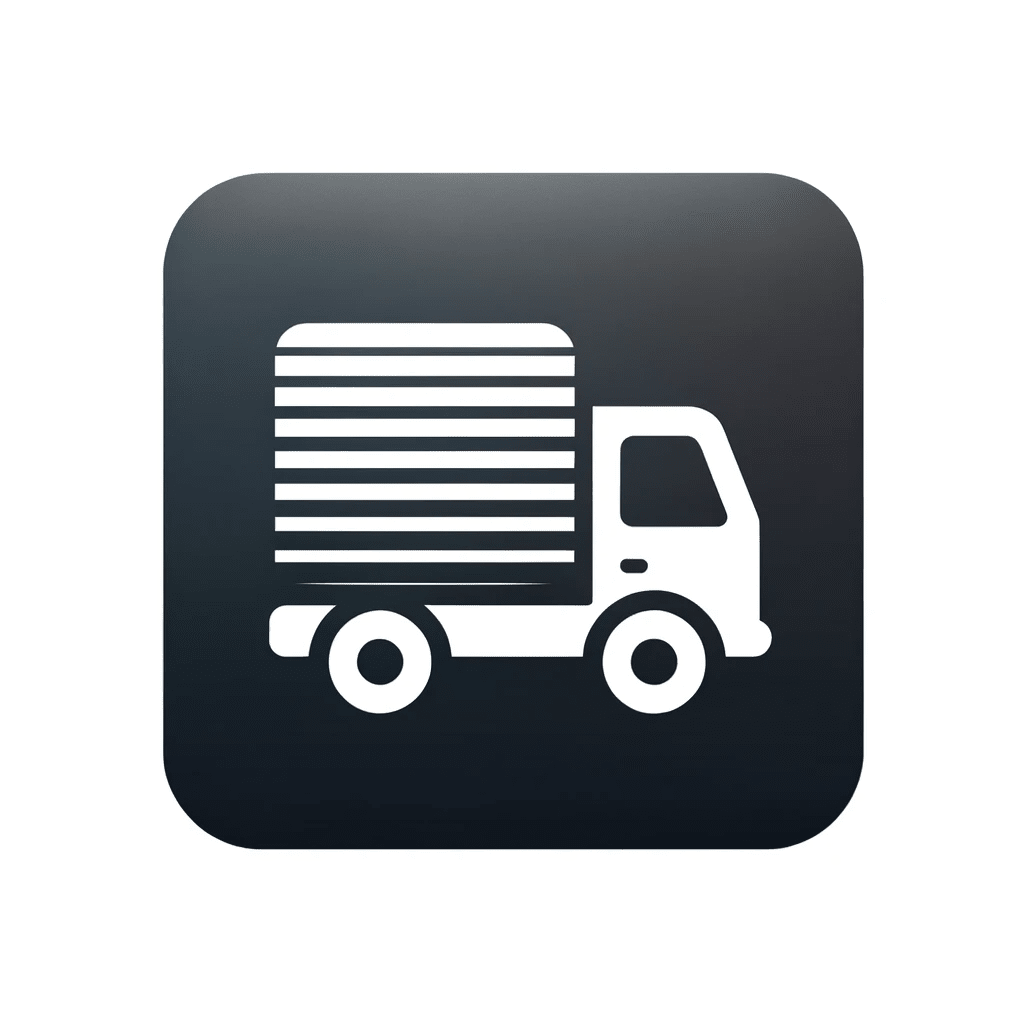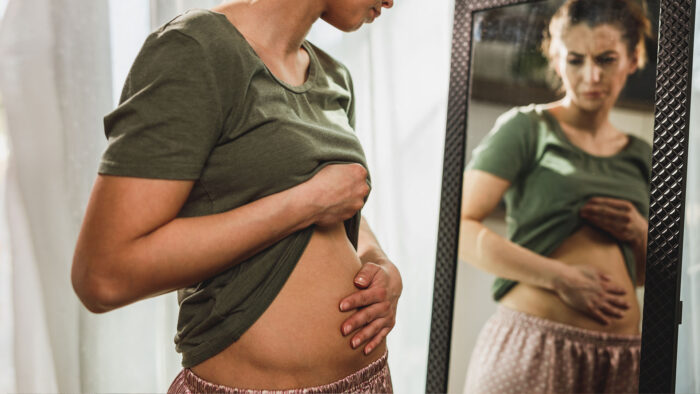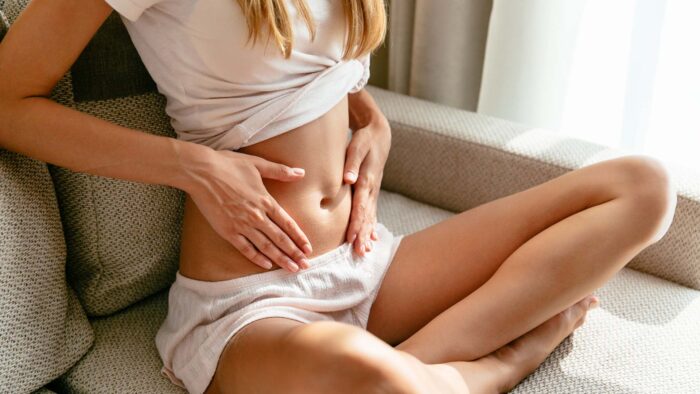Healing after an abortion: “You have all the right in the world to be sad – or relieved”
- READING TIME 8 MIN
- PUBLISHED November 02, 2023
- AUTHOR Donna
Key takeaways
- Urška Grahornik shares her story of dealing with painful periods, her experience with hormonal contraceptives and abortion.
- She illuminates the hard decisions she needed to make, the feeling of loss and the path to emotional healing.
- Urška believes that women who consider abortion don’t need to feel ashamed or guilty regardless of the decision they make.
HEALING AFTER AN ABORTION
You have all the right in the world to be sad – or relieved
In a heartfelt conversation with Donna, Urška Grahornik, a 33-year-old marketing professional from Slovenia, takes us through her life with an openness that is both moving and inspiring. With clear-eyed honesty, she opens up about her battles with menstrual pain, the lack of empathy from healthcare providers and an emotional aftermath of an abortion.
Today, she is an advocate for bodily autonomy and emotional well-being for women. “You have all the right in the world to be sad, empty or to move forward and find relief,” she shared earnestly with us in a recent interview.
Urška, thank you for sitting down with us. Could you begin by taking us back a bit to your first period? How do you remember it?
I was very eager to get it. I was 16 at the time and all my friends at school already had it. I wanted to be part of the group and be part of the conversation. When my first period finally happened, it was light and uncomplicated. There was no pain, only a couple of blood drops. But I was still so happy I got it. It felt like I became a woman. But, unfortunately, pain-free periods didn’t last long.
What happened then?
After a year, when I was 17, I started using contraception. I was taking the pill for three years, while still experiencing regular periods. When I hit 19, my gynecologist said that the contraceptives I used were very “hormonal”. She then suggested I switch to something “lighter”, but because of the change, my periods suddenly disappeared.
I went back to the gynecologist after six months to explain the situation, but her response was nothing short of horrific. She told me that losing my period was in fact nothing special and that I should just get over it because I won’t die because of it. Another three months went by and when my period didn’t seem to be in sight, I decided to stop using contraceptives altogether.
Eventually, menstruation returned but it wasn’t the same again. It was extremely painful. At its worst, I vomited or I simply spent hours lying on the bathroom floor. Since then, my periods hurt – sometimes it’s manageable, other times debilitating.
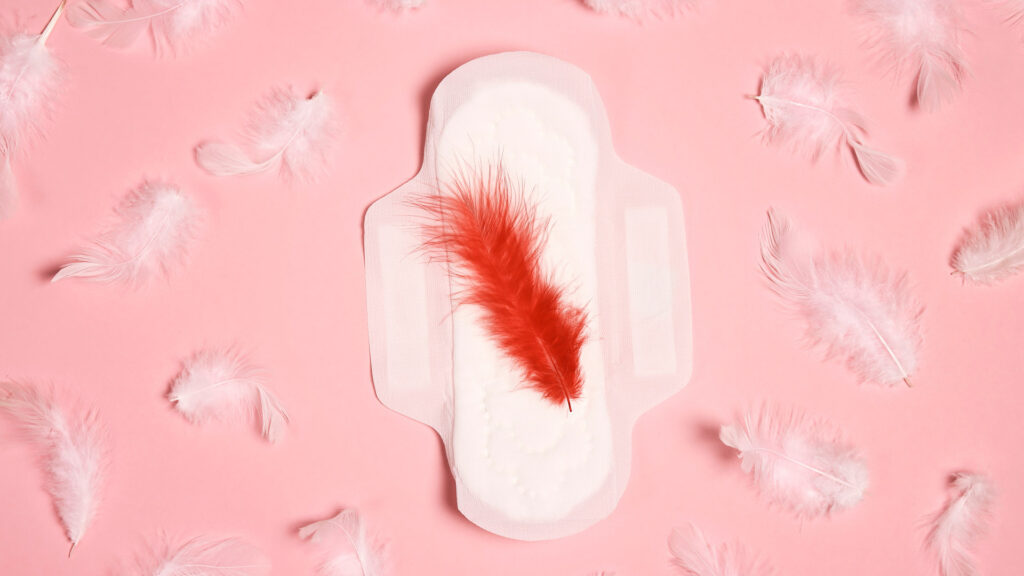
What did you use or take to ease the pain? What helped the most?
At first, paracetamol helped, later I needed something stronger like naproxen or higher doses of ibuprofen that my mom gave me. It was especially bad if I let the pain take over. In time, when you better understand how the body works, you can anticipate when period pain is coming and can react in time. The sensations in the abdomen are unmistakable.
Often, I start bleeding without issues, but the pain follows the next day. At first, there’s only low-intensity pain, which may last for a couple of hours, but then it becomes throbbing and ever stronger. It often comes with digestive problems.
Aside from painkillers, I also learned that gentle exercise helps, even if it’s just walking outdoors. I sometimes also make mint tea, but mostly just crawl into bed and hide under a blanket.
How did you manage the pain at work?
When I was a student, I worked at a bar. There, you grin and bear it. After I changed jobs for an office, I was transparent about my period and the pain. Colleagues were always supportive, especially women who also suffered from painful periods. The office toilets had tampons and other hygiene products you could use.
Who did you turn to for information when you first started menstruating? Or did you have to learn it by yourself?
All by myself. We never talked about periods at home or how to use tampons or pads. My mom hid pads at the bottom of the laundry basket. I could take them, but I never discussed periods with her.
I mostly talked about it with friends since it’s an interesting and fascinating topic for young girls. I remember that when I was growing up in the mid-2000s, tampons, for example, were very popular and often a conversation subject.
If you had a daughter, what period information would you give her?
I would try to guide her. I would tell her that every girl has different experiences and if she has pain there are a bunch of things she can try or use. I would also show her where she can buy these products and take her there.
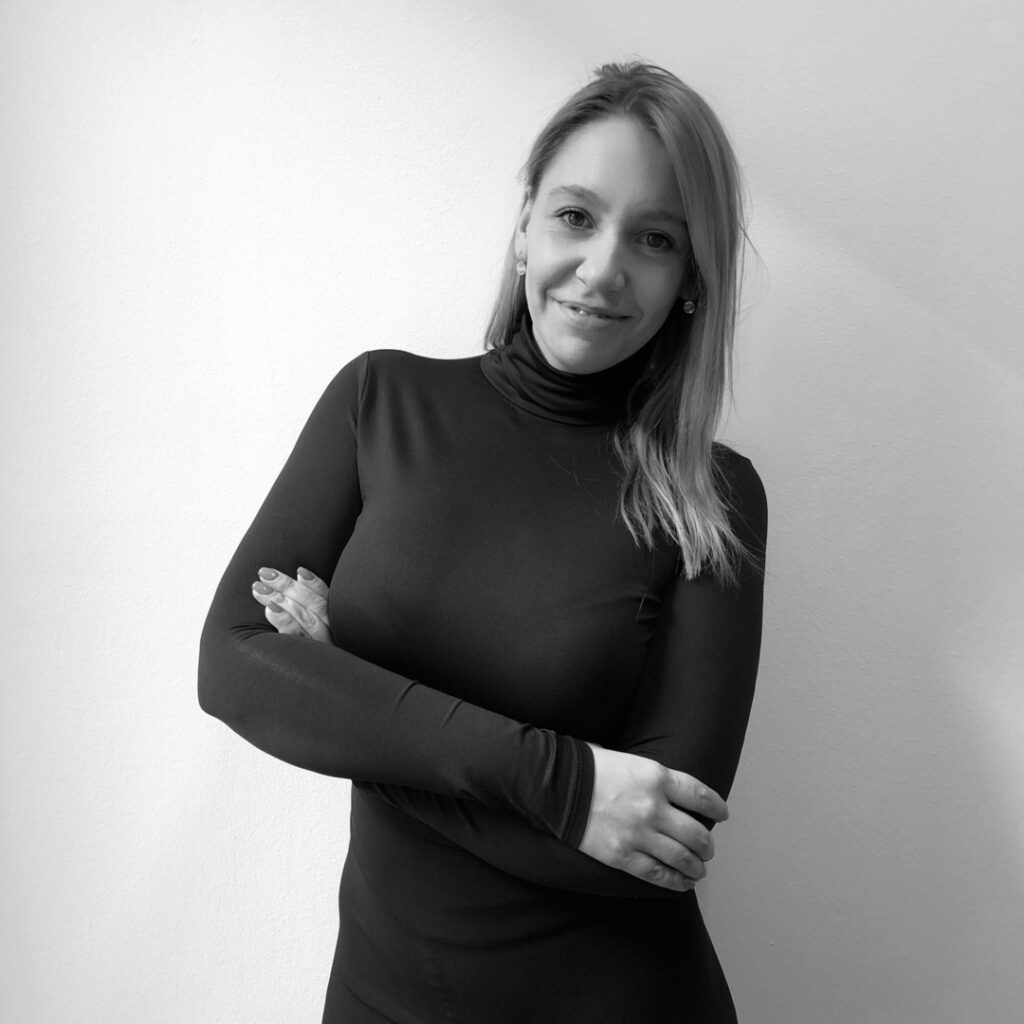
“Whatever decision you make about abortion, there’s no reason for shame or guilt. You still have all the right in the world to be sad, feel empty or, on the other hand, to be relieved and move on with your life.
Urška wholeheartedly advocates for the autonomy of girls and women+ who are facing a possible abortion, including how they should feel and think about their decision.
When do you think is the right time to get involved as a parent?
I think it depends on the person and how fast she is developing. You would probably just know when she’s ready to have the conversation. In my case, I would have preferred to have the talk when I was 12 years old. I would have loved to hear that period is a normal monthly process, but that it’s also normal if you don’t have it at that age.
Can you also tell us about your first experience with contraceptives?
I genuinely thought I got pregnant and went to the gynecologist. She wanted to frighten me a bit by saying that I am pregnant, although I learned later I wasn’t. I took a blood test to determine pregnancy. When it came back negative, she said it should be a lesson for next time. That’s how I got my pills, but it was far from a pleasant experience.
Having gone through an abortion, what emotions and thoughts were going through your mind during the time?
I was 24 when I fell in love, got married and got pregnant. It wasn’t planned but I was happy. My husband at the time was from the US and he returned there, while I stayed in Europe where I needed to finish my studies. Soon, he told me he wasn’t ready to have a baby and that we still have time. I was contemplating a lot about what to do but in the end decided to have an abortion.
Three months pregnant, I went to a gynecologist and applied for a procedure called dilation and curettage combined with suction, in which they remove the tissue from the inside of the uterus. I had second thoughts when I was lying in the hospital bed, but now I know I just wasn’t ready.
After the procedure, I started bleeding heavily because the doctors didn’t clean the area well enough. I had to go in the second time which was very painful to do since it felt like I was reliving the same experience all over again. I’ll also never forget the cramps and the pain, both physical and emotional. It felt like a part of me went missing that day.
How do you heal after an experience like this?
The grief and emptiness still weigh on me to this day. I sometimes have nightmares, reliving the physical pain I experienced. It wasn’t easy but I worked my way out. I also felt I needed to do it on my own because I just couldn’t explain the void I felt to anyone else. Above all, I had to forgive myself for the decision I made. I also realized that even if I decided to keep the baby, I wouldn’t be able to offer them everything they deserved.
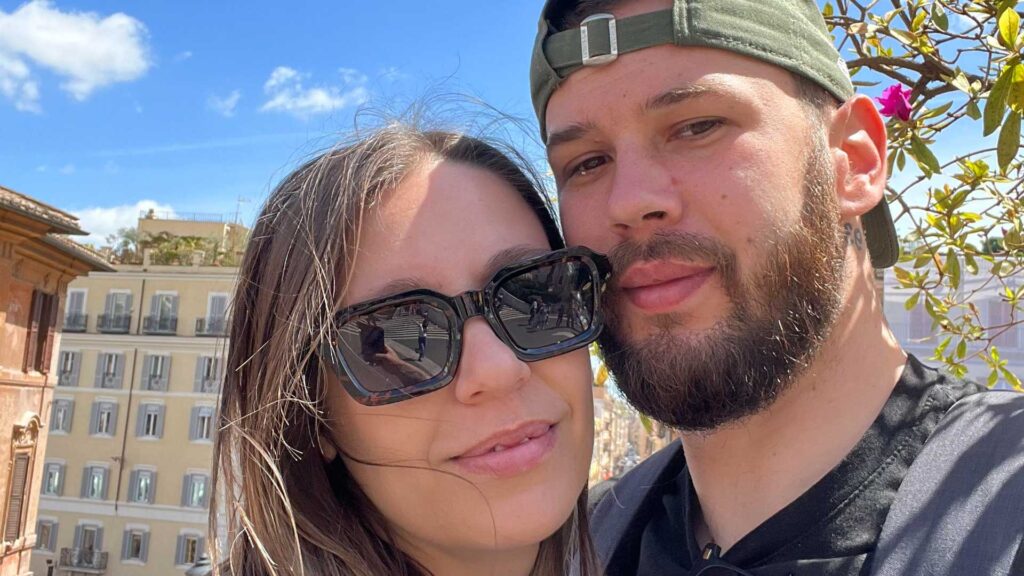
How did this experience influence your emotional readiness when faced with a miscarriage later in life?
After around 8 years since the abortion, when I was 32, I had another such experience. It was a miscarriage; the baby’s heart stopped beating at six weeks. They sent me to the hospital for an abortion pill. I knew what to expect this time. I was also emotionally much more stable and better prepared because there was nothing I could do. It was easier to move on. My partner was also a huge support; he was understanding and very empathetic.
What would you tell girls and women+ who are also faced with decisions about having an abortion?
I’d like them to know that there’s absolutely nothing wrong if they decide to have an abortion. They shouldn’t take that decision lightly though. The body will recover, but the mind and the heart – that’s another story.
However, I learned that whatever decision you take, there’s no reason for shame or guilt. You still have all the right in the world to be sad, feel empty or, on the other hand, to be relieved and move on with your life. It’s also ok to share your story and find help. You could go to a therapist or seek support from your family or friends. But the bottom line is that you’re not a bad person because of it, you’re only human.
We are having this conversation as you expect your first baby. Would you say that your experience influenced how you think about pregnancy and motherhood?
It didn’t change the fact that I wanted to become a mom and experience pregnancy in its entirety. But I did start to appreciate emotional support, knowing other women have endured the same. That’s why I want to be open about my experience and share it with others.

✿ ✿ ✿
An important part of our mission at Donna is to provide a platform for voices like Urška’s. We want to amplify them so that you may find strength, comfort or empowerment in the journeys of incredible women+ from all walks of life.
Article overviewRELATED ARTICLES
Explore more
Feed your curiosity with more content. Dive deeper and explore our selected articles, curated just for you.
